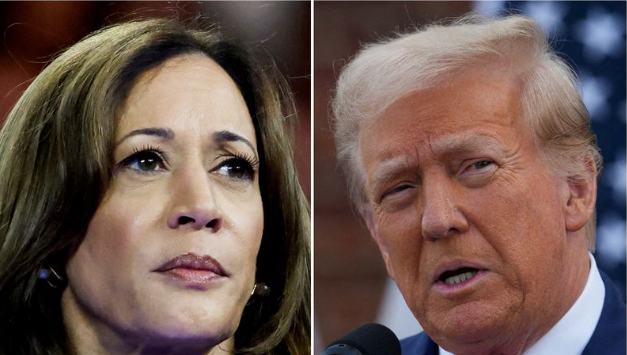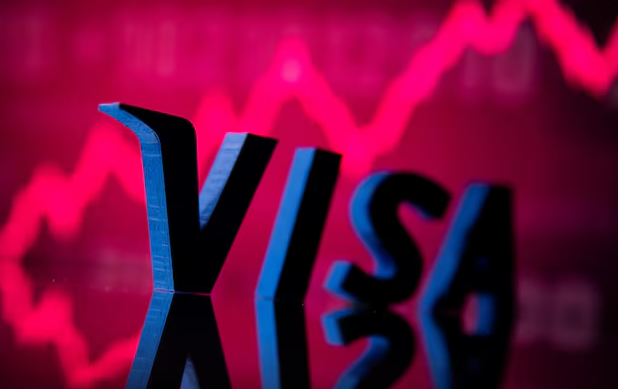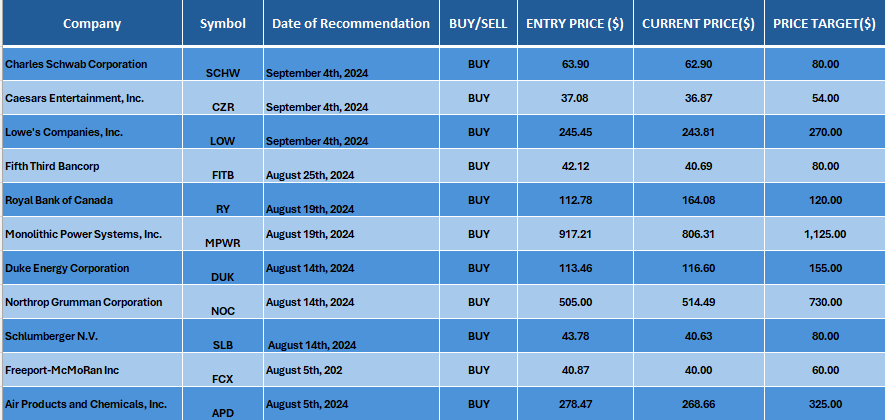
Date Issued – 11th September 2024
Risk Assets and Dollar Drop Following Key US Presidential Debate
The U.S. dollar weakened significantly on Wednesday, reaching its lowest point of the year against the Japanese yen in the aftermath of the crucial U.S. presidential debate. As of 02:36 ET (06:36 GMT), the USD/JPY pair fell by 0.72%, while the EUR/USD strengthened by 0.25% against the dollar. The yen’s appreciation was further supported by Bank of Japan board member Junko Nakagawa’s remarks, indicating that the central bank is ready to raise interest rates if the economy and inflation develop as forecasted. In parallel, Bitcoin saw a downturn, shedding 0.7% of its value, with the cryptocurrency trading at $56,537.00 on the Bitfinex exchange. U.S. stock futures also took a hit, with the S&P 500 Futures down by 15 points, or 0.27%.
The presidential debate, the only one scheduled for this race, showcased Democratic nominee Kamala Harris as the perceived victor over Republican candidate Donald Trump, according to market reactions. The intense debate covered a broad range of issues, from policy distinctions to personal attacks, and appeared to shift investor sentiment. As the U.S. election nears, the debate has added to the mounting anticipation of a tightly contested race. Following the debate on September 10, betting odds reflected a dramatic shift, with Donald Trump’s chances of winning in 2024 leveling with Harris on the Polymarket betting platform. Citi strategists commented on the market’s reaction, noting, “We are awaiting new poll results in the coming days to determine if undecided voters are shifting toward Harris.” They added, “The race remains close for now, and Tuesday’s market moves may signal that investors are beginning to refocus on election-related risks, though Fed policy and the U.S. economic outlook continue to dominate.”
Strategists also highlighted that as the election approaches, especially if the race remains competitive, markets could see increased risk premiums favoring a Trump win, potentially driving a stronger USD in the lead-up to November. In a separate development, pop music superstar Taylor Swift announced via Instagram that she would be voting for Kamala Harris in the 2024 presidential election. Calling Harris a “warrior,” Swift expressed confidence in Harris’s leadership, stating, “I believe we can achieve much more if our country is led by calm rather than chaos.”
IMF and Ukraine Secure Preliminary Deal for $1.1 Billion Aid Package
The International Monetary Fund (IMF) announced on Tuesday that it has reached a preliminary agreement with Ukraine, paving the way for the embattled nation to access approximately $1.1 billion in financial assistance. This agreement, following what Kyiv described as “difficult” negotiations, still requires approval from the IMF’s executive board, expected in the coming weeks. As a key international lender to Ukraine, the IMF plays a crucial role in the country’s economic stability. Its four-year, $15.6 billion program is a cornerstone of a broader global financial support package aimed at helping Ukraine navigate the ongoing challenges posed by Russia’s full-scale invasion, now approaching its third winter.
“Russia’s war in Ukraine continues to have a devastating impact on the country and its people,” remarked Gavin Gray, head of the IMF’s monitoring mission to Kyiv, during the program’s fifth review. Gray emphasized the importance of “skilful policymaking, the adaptability of households and firms, and robust external financing” in maintaining Ukraine’s macroeconomic and financial stability. Despite these efforts, the IMF cautioned that Ukraine faces “exceptionally high” risks, with the country’s economic outlook clouded by the ongoing war. A slowdown is anticipated, driven by the labor market’s strain and continued Russian attacks on critical energy infrastructure. Ukraine’s Central Bank Governor, Andriy Pyshnyi, highlighted the urgency of securing funding for the 2025 budget, stressing that international financial support remains a top priority. Pyshnyi also underscored the importance of Ukraine’s efforts to generate domestic resources, noting, “Timely and predictable assistance from international partners is essential, but Ukraine must also take steps to build internal reserves.”
Kyiv currently allocates approximately 60% of its budget to military expenditures, relying heavily on Western financial aid to cover essential public spending, such as pensions, wages for public sector employees, and humanitarian support. Since the onset of the war, Ukraine has received nearly $98 billion in financial aid from Western partners, according to data from the finance ministry. Looking ahead, the IMF has urged Ukraine’s government recently reshuffled by President Volodymyr Zelenskiy to adhere to “financing constraints and debt sustainability objectives” in planning the 2025 budget. The IMF also recommended exploring avenues for increasing domestic revenues. Kyiv has already implemented several fiscal measures, including raising import and excise duties, and has expressed plans to increase taxes further. Additionally, Ukraine secured an agreement from bondholders to restructure and reduce its debt load, providing some relief to its financial burden.

Visa Aims for Tenfold Expansion in Digital Payments Adoption in Pakistan
Visa has announced ambitious plans to increase the number of businesses in Pakistan accepting digital payments by tenfold within the next three years, according to Leila Serhan, Visa’s General Manager for Pakistan, North Africa, and the Levant. This move comes as part of a broader strategy to modernize Pakistan’s payments infrastructure, in partnership with 1Link, the country’s largest payment service provider. The collaboration seeks to streamline remittances and promote digital transactions across the nation.
With a population of 240 million, Pakistan is home to one of the largest unbanked populations in the world. According to central bank estimates, only 60% of the country’s 137 million adults or 83 million individuals have a bank account. Visa is actively investing in the development of digital payment systems to make these services more affordable and accessible for both consumers and businesses.
At present, Pakistan has approximately 120,541 point-of-sale (POS) machines, a number Visa aims to dramatically increase. “Some businesses have more than one POS machine, but our goal is to increase businesses’ acceptance of digital transactions by tenfold,” Serhan said. Visa’s strategy includes deploying technologies that can turn smartphones into payment devices, as well as facilitating various payment methods such as QR codes and contactless card payments. Visa is also looking to extend its reach beyond major cities, targeting small and medium-sized enterprises (SMEs) to broaden the use of digital payments. The partnership with 1Link is expected to enhance the remittance process by improving security and encouraging the use of official channels for overseas transactions. Pakistan is one of the top global recipients of remittances, with funds from overseas Pakistanis playing a crucial role in maintaining foreign exchange reserves and contributing to the national GDP. Serhan expressed confidence in the potential of this partnership, stating, “We’re excited to complete the technical integration in the coming months, and we believe this will be a game-changer for many consumers in Pakistan.”
Ireland Faces Decision on €13 Billion in Back Taxes from Apple Following EU Court Ruling
Following a landmark decision by the European Court of Justice (ECJ), Ireland is set to receive €13 billion ($14.4 billion) in back taxes from Apple, despite Dublin’s long-standing resistance to the windfall. The ruling finalizes a prolonged legal battle that has left Ireland in an unusual position: grappling with how to allocate a significant cash injection it had previously fought to avoid. The decision arrives at a critical political juncture, with a general election looming no later than March next year. Irish lawmakers must now decide how best to utilize these funds, a topic likely to dominate the national conversation in the coming months, especially as the country faces pressing infrastructural and housing challenges.
The ECJ ruling confirmed that Ireland granted Apple unlawful state aid, as first determined by the European Commission in 2016, and mandated the recovery of the funds. While welcomed by tax justice advocates, the decision creates a dilemma for the Irish government, which has consistently maintained that it does not offer preferential tax treatment to any companies, including Apple. The €13 billion sum, which has been held in escrow, will now be transferred to Ireland, a process expected to take several months. This development comes amid a rare budget surplus for Ireland, buoyed by strong corporate tax receipts. While some international observers warn of reputational risks for Ireland’s low-tax business model, domestic pressures are mounting to use the funds to address urgent societal needs. With elections approaching, the government is likely to face increased scrutiny on how it plans to spend this unexpected windfall, particularly in areas like housing and public services.
Tax justice advocates, including Oxfam and the Tax Justice Network, hailed the ruling as a call for broader reforms in international tax cooperation and the closing of loopholes that allow multinational corporations to avoid paying fair taxes. As one of the lowest corporate tax jurisdictions in the EU, Ireland’s handling of this decision will be closely watched both domestically and internationally.
Oil Prices Recover Amid Hurricane Francine Supply Disruption Fears
Oil prices rebounded over 1% on Wednesday, recovering some of the sharp losses from the previous day, as concerns about potential supply disruptions caused by Hurricane Francine in the U.S. Gulf of Mexico outweighed fears of weakening global demand. Brent crude futures rose by 84 cents, or 1.2%, reaching $70.03 per barrel by 0704 GMT, while U.S. West Texas Intermediate (WTI) crude futures climbed by 81 cents, or 1.2%, to $66.56 per barrel. This recovery follows a significant drop on Tuesday, when Brent crude fell to its lowest since December 2021 and WTI hit a new low for May 2023. The losses were driven by the Organization of the Petroleum Exporting Countries (OPEC) revising down its demand forecasts for both 2024 and 2025, fueling concerns over global consumption trends.
“The market rebounded autonomously after Tuesday’s substantial drop,” said Yuki Takashima, economist at Nomura Securities. He also pointed to fears of supply disruptions due to Hurricane Francine as a factor supporting prices. Despite the recovery, Takashima cautioned that oil prices would likely face continued downward pressure in the near term, as investors remain concerned about a potential demand slowdown due to economic challenges in China and the U.S. Takashima has revised his forecast for WTI to range between $60 and $80 for the rest of the year, down from a previous estimate of $65 to $85. Hurricane Francine, which has strengthened in the Gulf of Mexico, has prompted evacuations in Louisiana and caused significant production shutdowns. The U.S. Bureau of Safety and Environmental Enforcement (BSEE) reported that 24% of crude oil production and 26% of natural gas output in the Gulf were offline as of Tuesday.
In addition to OPEC’s revised demand forecasts, the U.S. Energy Information Administration (EIA) projected that global oil demand is on track to reach a new record in 2024, even though growth in output may fall short of earlier forecasts. Meanwhile, U.S. crude oil inventories provided additional support for prices, with stocks falling by 2.793 million barrels during the week ending September 6, according to the American Petroleum Institute. Gasoline inventories also declined by 513,000 barrels. China’s daily crude oil imports reached a one-year high in August, although year-to-date imports remain 3% lower than the same period last year, suggesting softer demand. This has contributed to a cautious market outlook, with Hiroyuki Kikukawa, president of NS Trading at Nissan Securities, predicting a continued bearish market due to global demand concerns, particularly in China.
Find below some of our Buy/Sell Recommendations. Balfour Capital Group is a distinguished global boutique investment management firm with $400 million AUM and over 1000 Clients.

Disclaimer: This post provides financial insights for informational purposes only. It does not constitute financial advice or recommendations for investment decisions.

